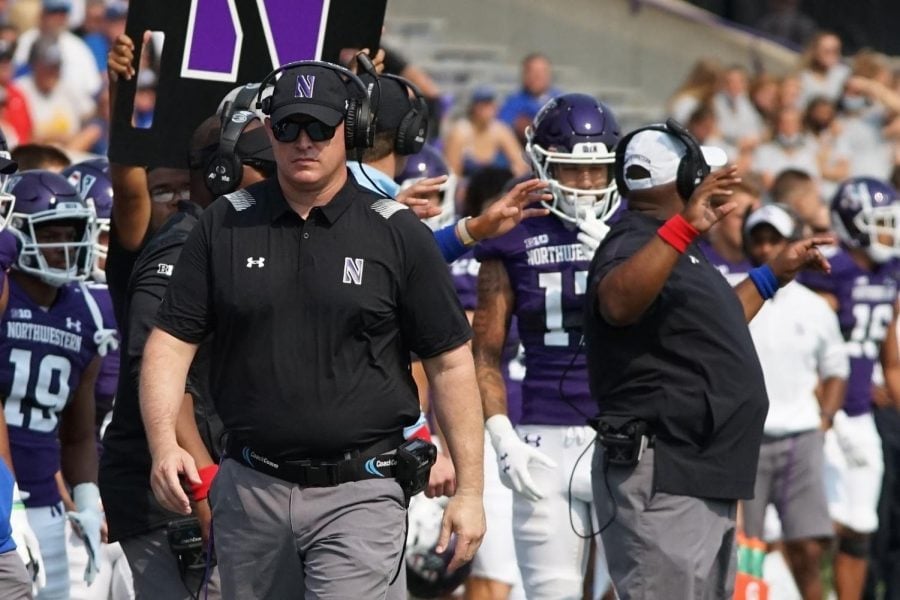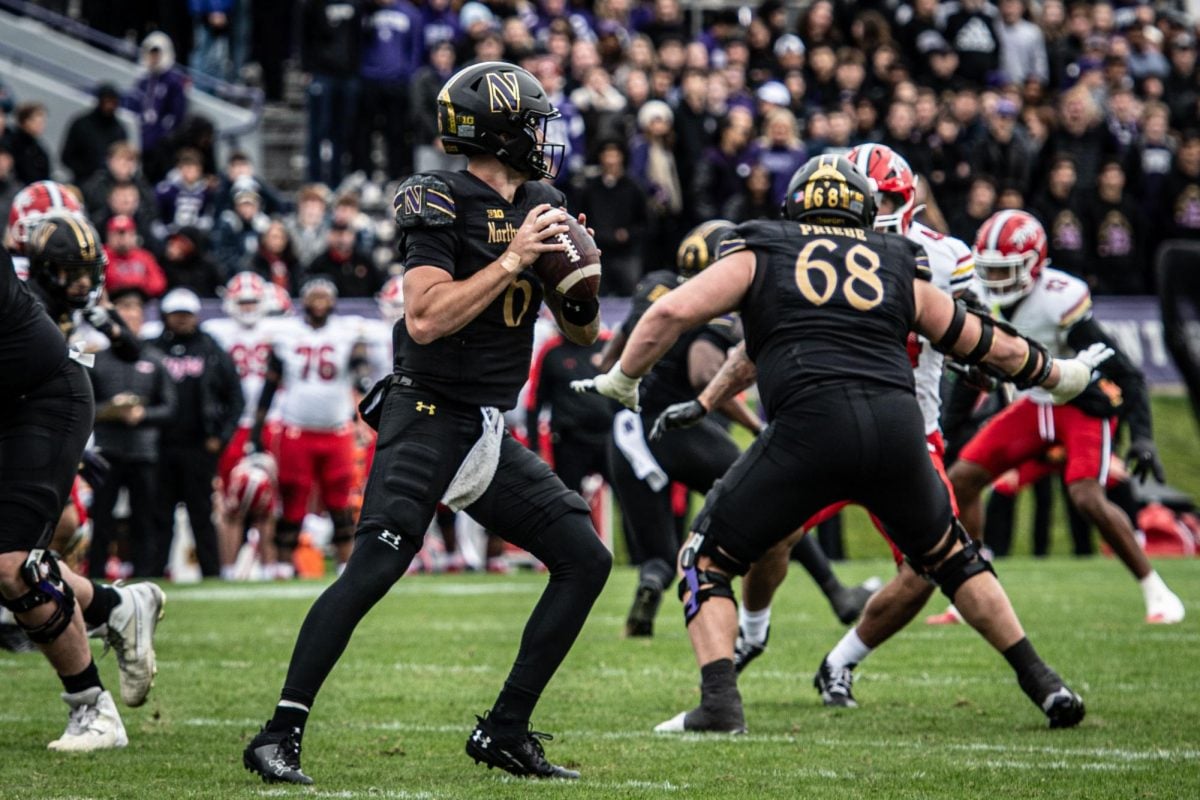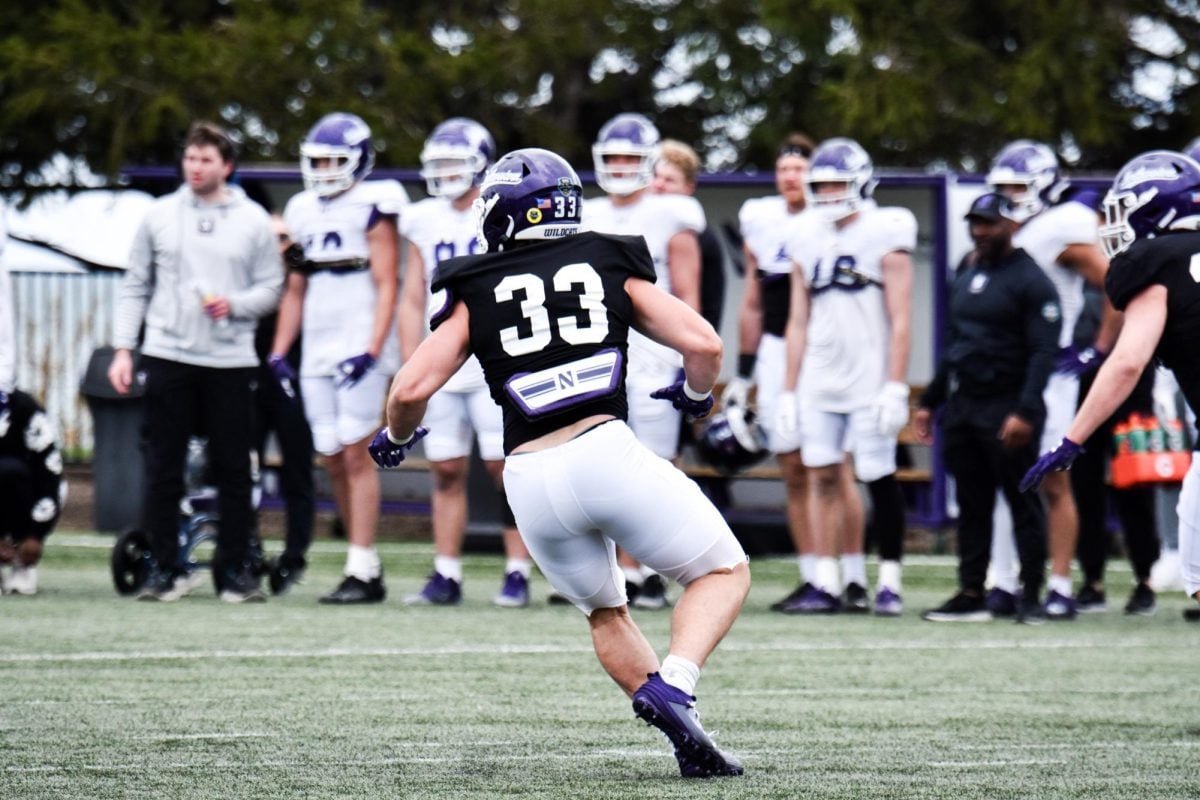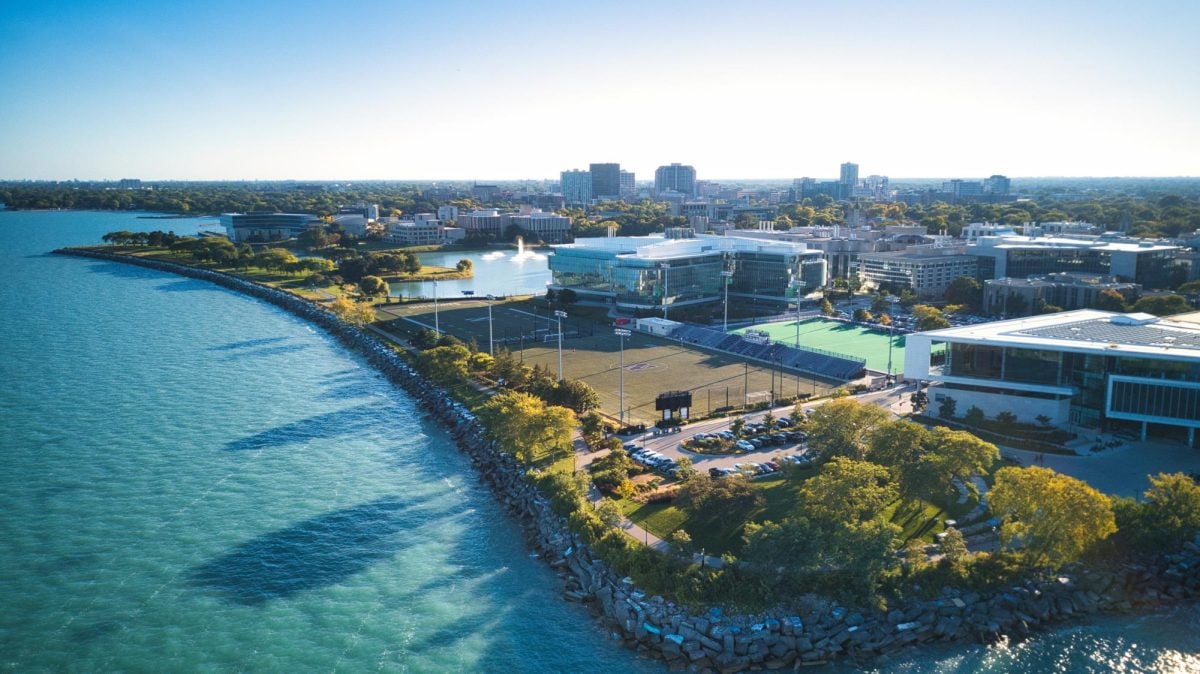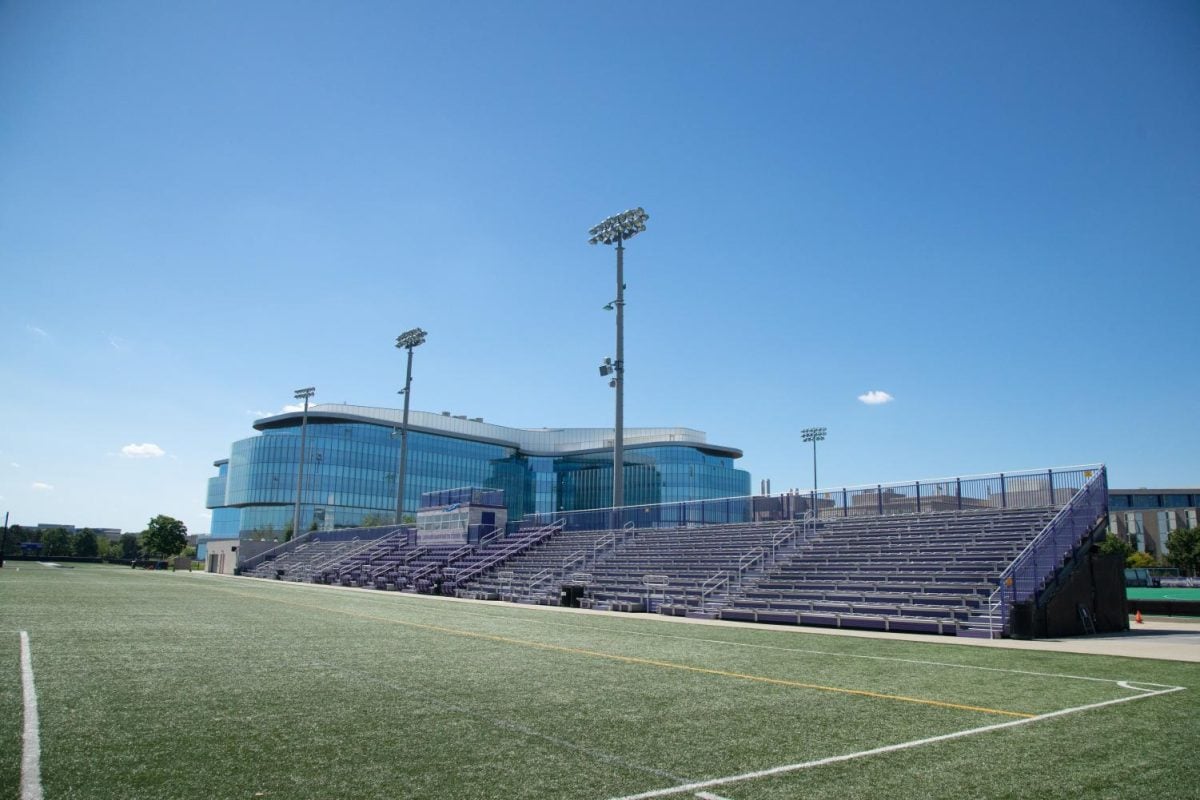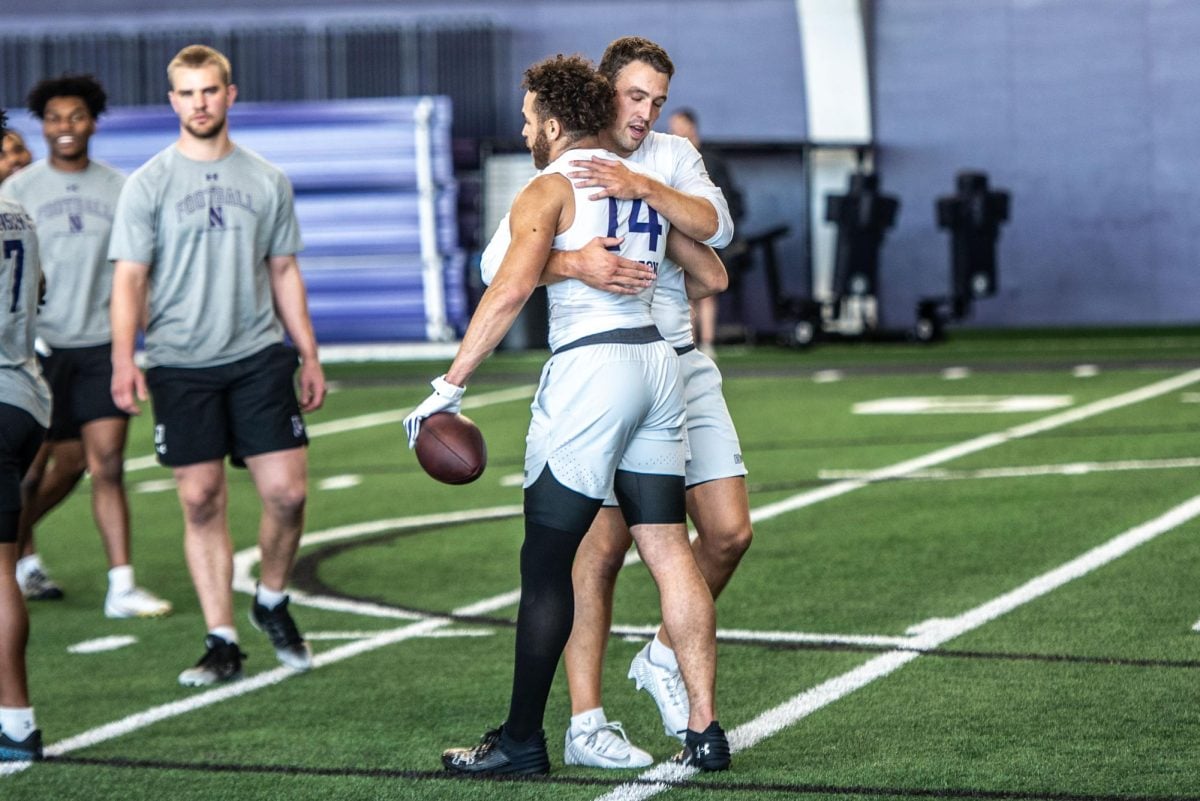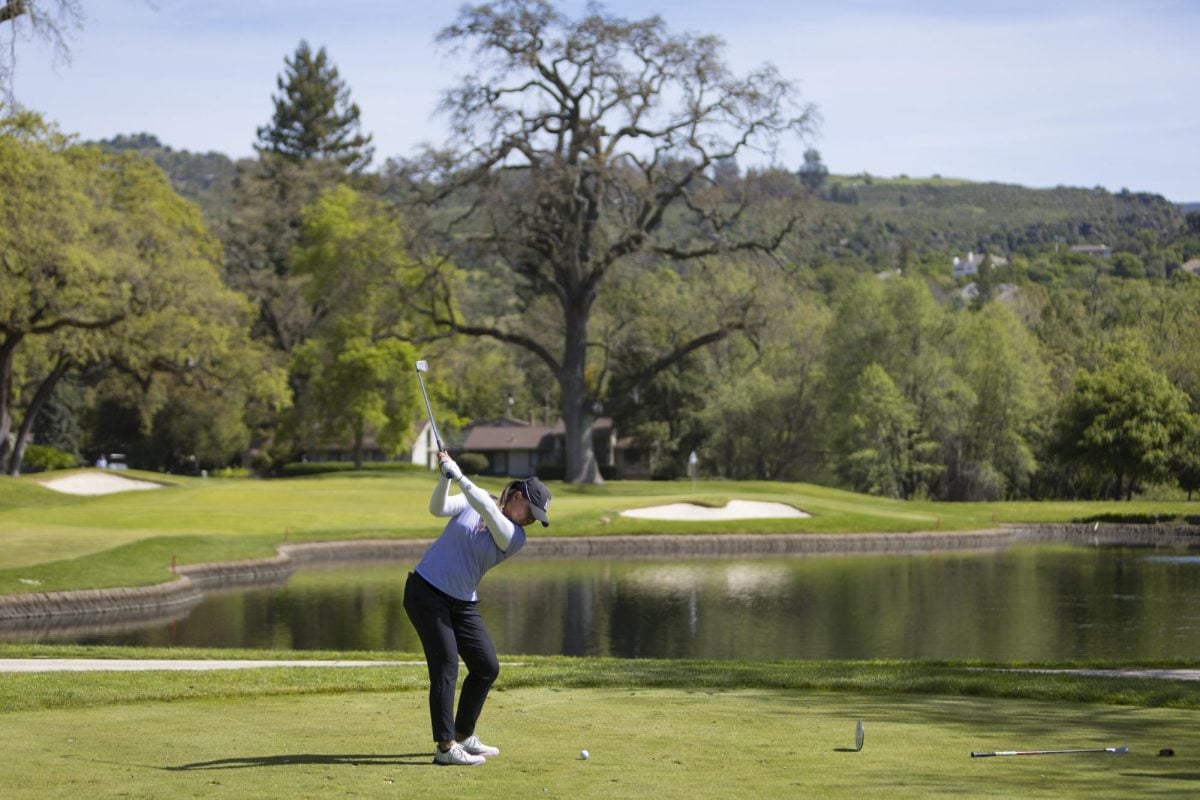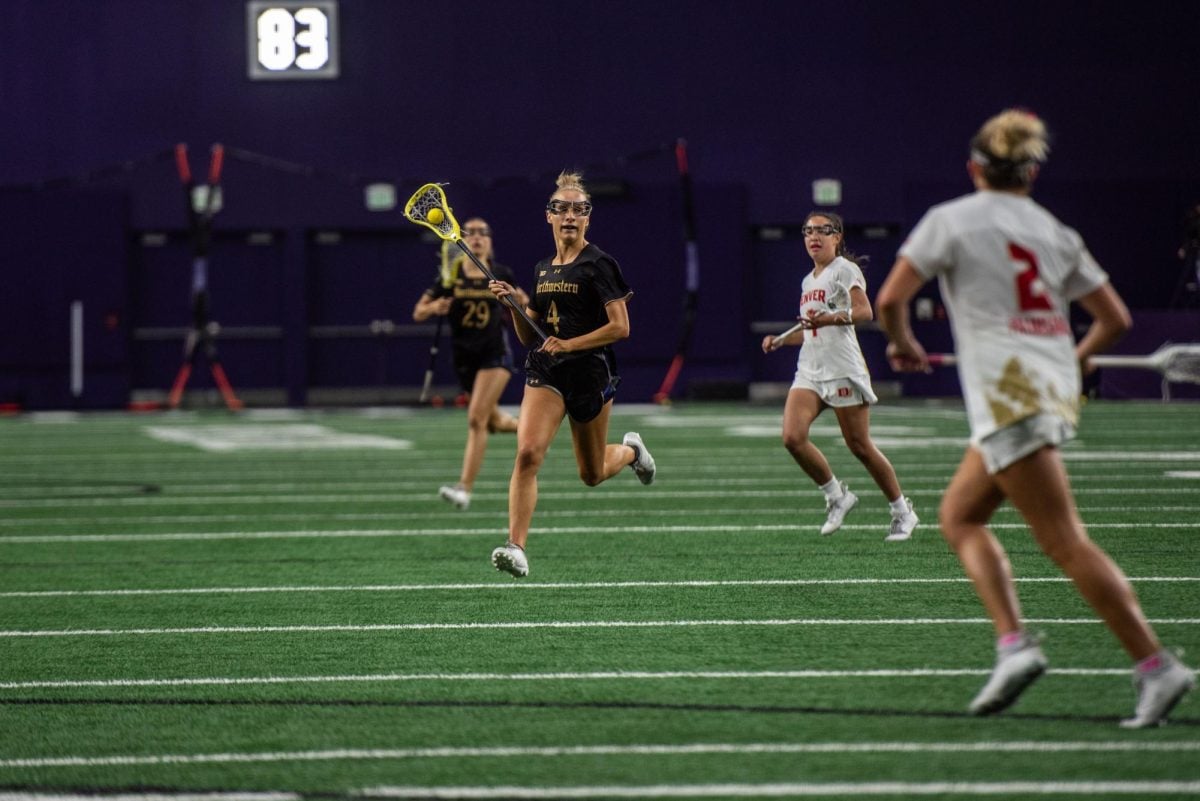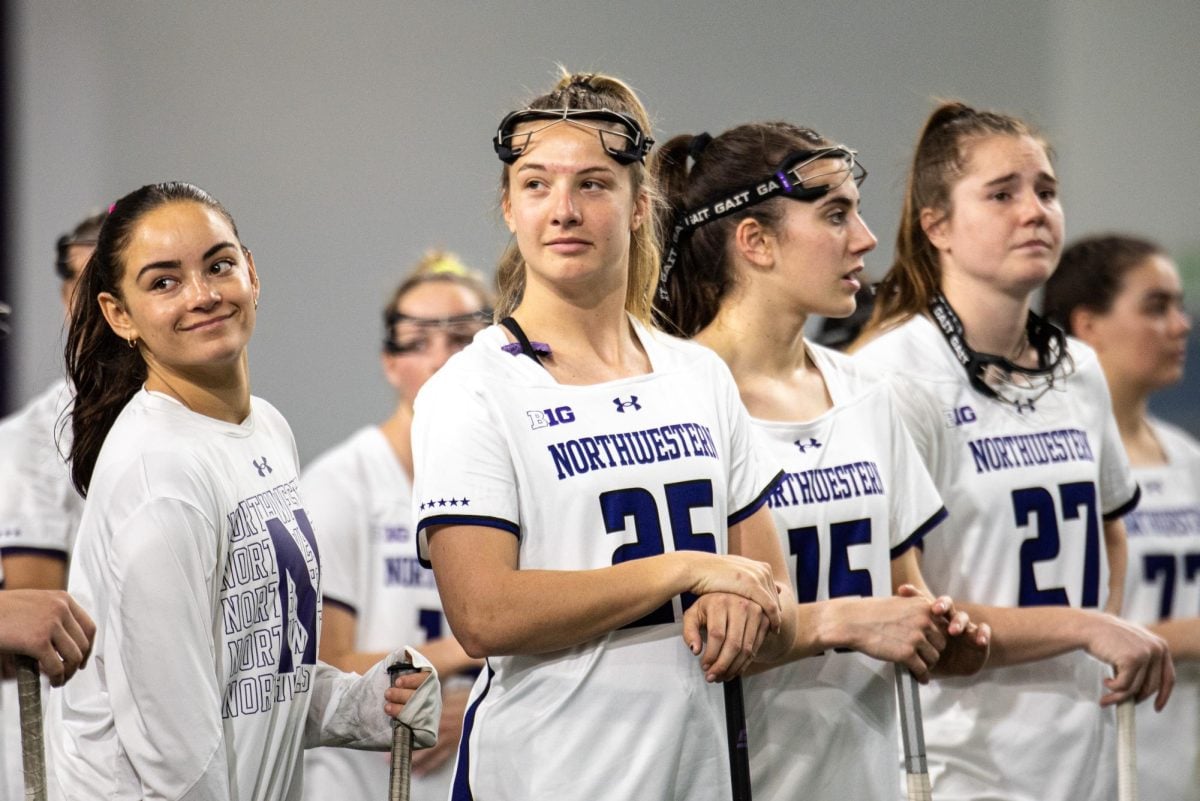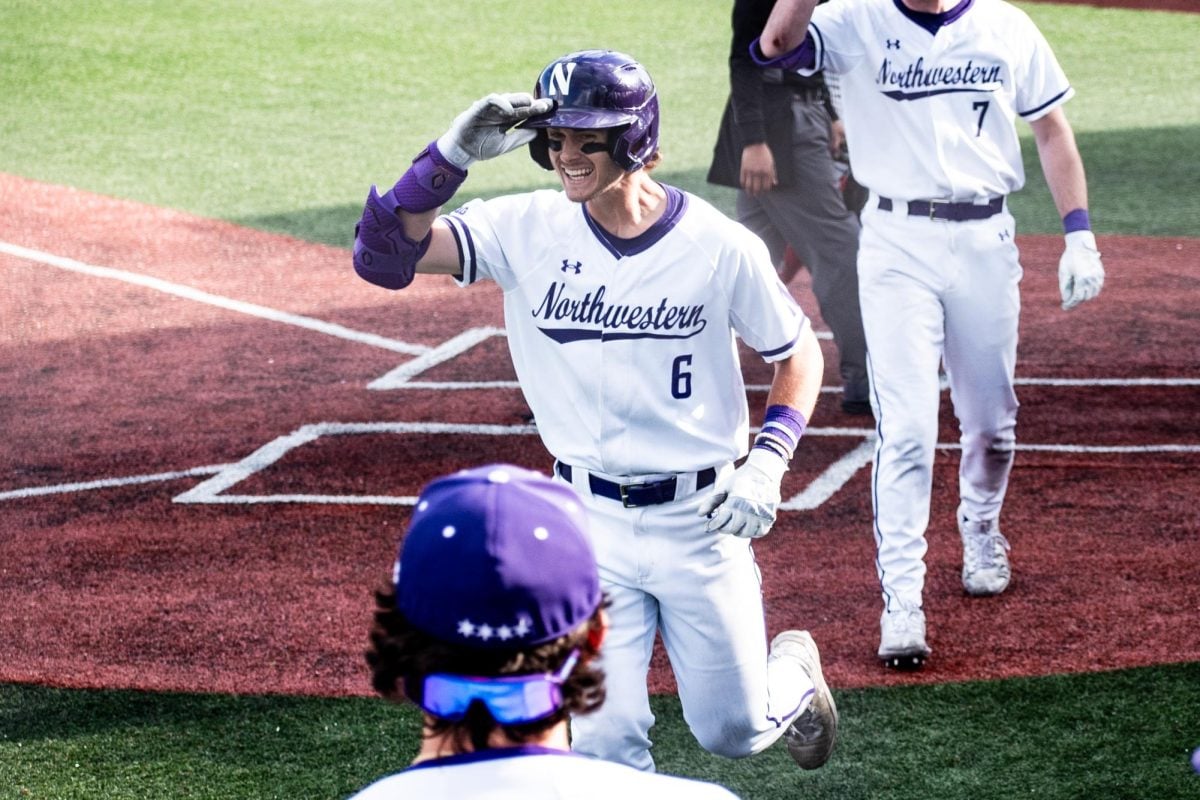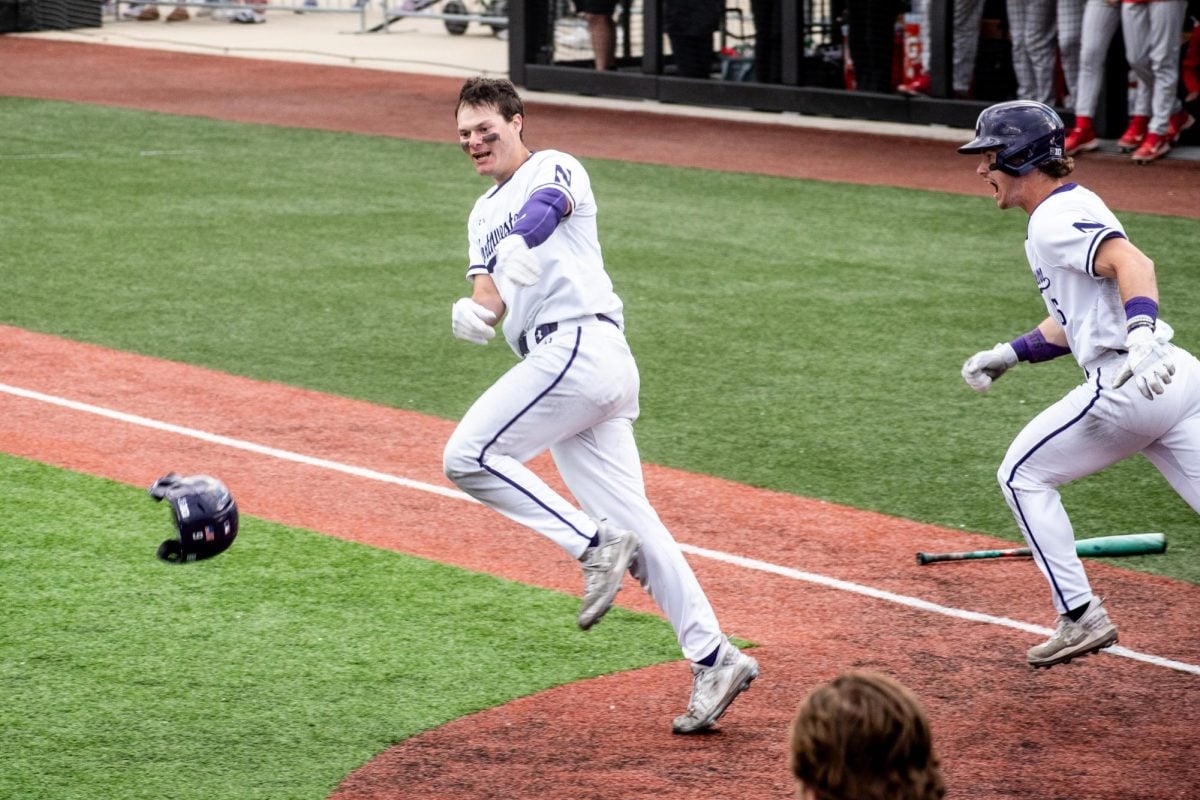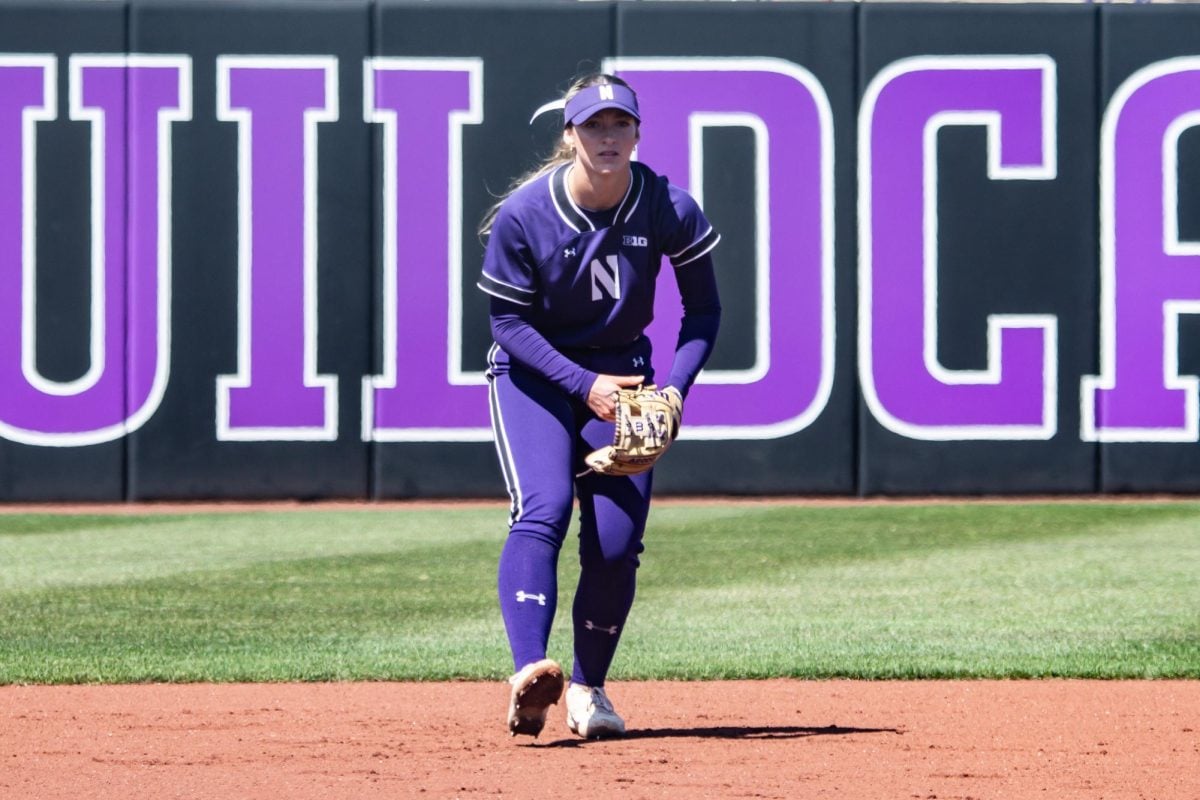Corbin Bryant doesn’t play fantasy football. But he knows how to make the most of a draft.
The junior defensive lineman arrived at coach Pat Fitzgerald’s house in February with a clear plan in mind for the evening’s festivities. It was draft night, and each invitee was a member of Northwestern’s Leadership Council. Each of the 10 Council members picked his dream team of seven or eight players for the Wildcat Games, NU’s offseason competition that extends beyond the football field.
Bryant had the third overall pick, and when his turn came he knew exactly who to choose: junior wide receiver Mark Ison. The former walk-on is not the team’s most well-known player, but the move surprised no one. After all, Ison had led Eric Peterman’s team to victory the year before. Ison doesn’t put up gaudy numbers on the field or bench the most in the weight room, but he does his share of work off the gridiron. He is heavily involved in community service activities and is a computer science major with one of the highest GPAs on the team.
“Everyone wanted Ison,” junior linebacker Nate Williams said. “I don’t know why he didn’t get picked first. He’s a community service guru.”
The draft continued into the night, with the members of the Leadership Council playing general manager while munching on Lou Malnati’s pizza. After the draft, the captains notified the teammates on their fantasy squads, and the Games commenced shortly thereafter.
“It’s an awesome way to compete in the offseason and keep the guys competitive on and off the field,” said Andrew Brewer, this year’s top draft pick at NU Media Day in July. “It’s not just about the athletic stuff, it’s about getting involved in the community. It definitely helps the guys to branch out outside their comfort zone.”
In only its second year, the Leadership Council has quickly become a vital part of the Wildcats’ offseason training. Fitzgerald is looking forward to what the Council can do for the program in the long term.
“Our guys have bought into it, they’ve run with it, and they’ve taken over ownership of the program,” Fitzgerald said. “Those are the desired outcomes. Hopefully it’s going to continue to build our program and help us get prepared to compete for championships.”CREATION OF THE COUNCIL
Fitzgerald and his staff created the Council after the 2007 season, when the team finished with losses in three of its last four contests.
“We needed to build some trust in the program and open up lines of communication,” he said. “We looked at a lot of schools and a lot of different models and examples. We got together and went on a retreat as coaches and we came up with a plan as to how we wanted to go about it. So far it’s worked pretty well.”
The coaches scoured the country and took note of the leadership structures on other teams. Specifically, the staff borrowed what they saw at Brigham Young and Kansas and adopted it for NU. The coaches started by creating a council of players: two freshmen, two sophomores, two juniors and four seniors.
Each class votes on its representatives after the season in January. In order of age, this year’s crew consists of Jeravin Matthews, Quentin Williams, Dan Persa, Brian Peters, Bryant, Williams, Brad Phillips, Mike Kafka, Sherrick McManis and Brendan Smith. The draft takes place several weeks after the Council is selected, and then the Games begin.TEAM BUILDING THROUGH COMPETITION
Fitzgerald created the Wildcat Games with a clear purpose in mind.
“We take the Wildcat Games as an opportunity to build up team, and create team,” Fitzgerald said. “Not break it down or rip it apart.”
Each member of the Leadership Council must have an understanding of the points system before selecting their teams for the Wildcat Games. The teams accumulate points through various offseason activities, including weightlifting, conditioning, community service and overall GPA.
“I was looking for community service, because that gets the most points,” Bryant said about his draft philosophy. “Then I was looking for strength and speed.”
But the Leadership Council’s duties don’t end in the spring. The Council is very active in the summer, leading workouts and planning social events. This summer, the Council sponsored “Meat Fest,” a barbecue where the players showed their skills on the grill.
“We had probably every kind of meat you could think of,” Peters said. “And we attempted to grill it all with style points.”
In addition to Meat Fest, the Council planned a dodgeball tournament, a basketball game and a volleyball game to break up the monotony of summer.
“The foundation of what we are doing is competition,” Fitzgerald said. “On and off the field. In the classroom and in the community.”
The squad with the most points at the end of the summer is excused from the grueling conditioning test on the first day of summer camp. The unit that finishes second gets out of the second half of the conditioning test.
Buoyed by Ison’s strong community service record, Bryant and his team, “The Goon Boat,” cruised to victory.
“Unfortunately a couple of those guys (on Bryant’s team) were injured and they went through the whole offseason hurt,” Fitzgerald said. “So they lost some points from a competition standpoint. But they made it up academically and socially, giving back to the community. Mark (Ison) beat about eight teams on his own.”‘VOICE OF THE PLAYERS’
The Leadership Council is still active in the fall, but in a different way. The group meets with Fitzgerald every Monday to discuss the direction of the team as a whole.
“We talk about the week,” Peters said. “How it went, the game, what we can improve on here and there.”
Throughout the season the players also serve as the coaches’ barometer of team morale. They judge the mood of the team and relay any concerns directly to the coaching staff.
“If there’s something on their mind we talk about it,” Fitzgerald said. “It’s better said than unsaid, so let’s get it out there in the open and figure out a way to create a plan to work with it.”
The players relish this role as representatives of the team.
“We’re the voice of the players to the coaches and the staff,” Matthews said. “We’re there for help if anyone needs it.”
While the competition has ended and the teams have dispersed, the anticipation is building for next year’s draft.
“Now Mark (Ison) is going to graduate,” Fitzgerald said. “So it’s going to be an interesting offseason.”[email protected]

